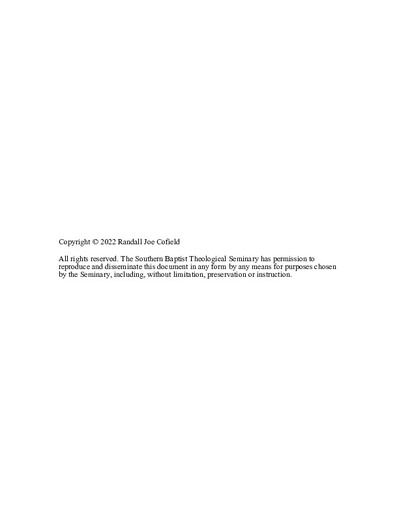Entropy and Renewal: The Pauline Concern and Paradigm for Church Revitalization
Subject
Church renewalChurch growth
Abstract
That the North American church is in a season of sharp decline is a well-studied and well-established factual reality. In our own Southern Baptist Convention, studies indicate that as many as nine out of every ten churches are either plateaued or in decline. Further, analysis of the data suggests that Southern Baptist churches are closing at a disproportionately higher rate than our sister denominations. Taken together, these studies indicate that churches in need of revitalization are not the exception, but rather, the norm.The escalating crisis of church decline has prompted a plethora of descriptive and prescriptive literature related to the revitalization of the local church. While description of the problem of church decline is fairly consistent across the literature, the prescriptive thrust of church revitalization literature demonstrates far less homogeneity, and to-date the literature is largely anecdotal and case-study oriented.
The need for church revitalization is not a new phenomenon. A survey of the NT indicates that an entropic principle has been warring against the church from the very beginning of her existence. The church as a vital, healthy, spiritual organism does not naturally flourish in a fallen world. Even the earliest churches were not inexorably inclined toward health and growth, but toward unhealth, division, decline, and even death. No church established in the NT still exists today.
The purpose of this study is to establish, by means of a thorough consideration of the NT literature, that church degeneration and decline was a concern addressed from the very beginning of the Great Commission enterprise. The exemplary first Jerusalem church and the Pauline corpus provide for us an identifiable and inspired paradigm for church revitalization that is duplicable and sustainable throughout the church age.

